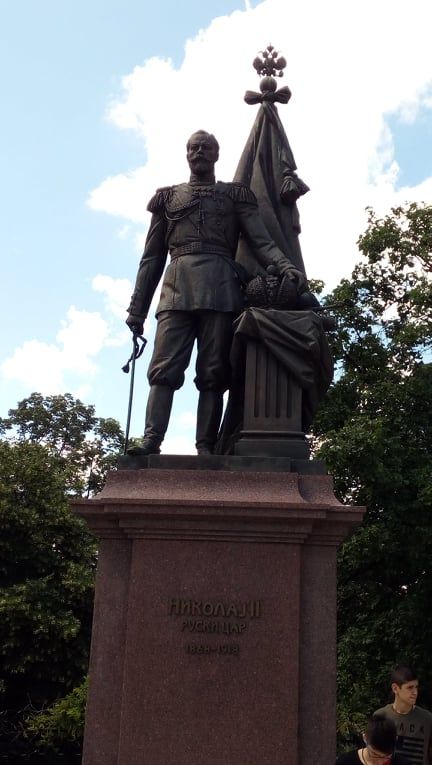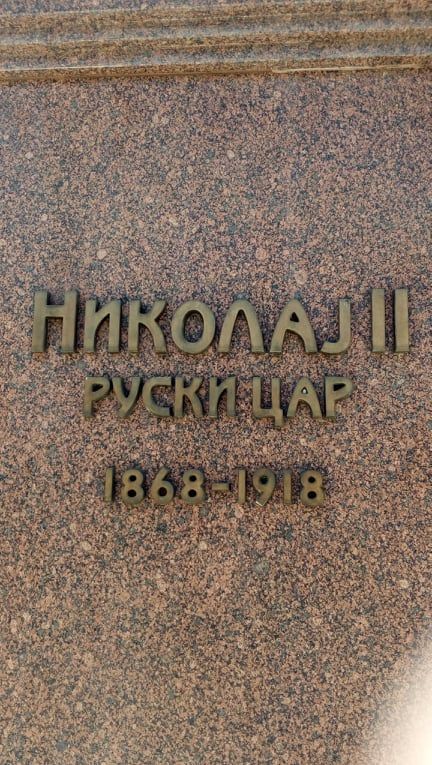Before the First World War, Russia provided diplomatic protection to Serbia during the July crisis, defending it from Austro-Hungarian and German diplomacy and media attacks, and when the war broke out, Russia did its best to find us.
At the end of July 1914, Regent Alexander Karadjordjevic, speaking of the great powers, first of all emphasized "the feelings that inspire Russia and the gracious announcement of Tsar Nicholas II that Russia will in no case leave Serbia in the lurch." Russia provided assistance in weapons, military supplies, food and the military. Different Serbian demands were met directly by the Emperor. He used to write "need help" on diplomatic dispatches that transmitted requests from the Serbian side for financial assistance.

When the Serbian army, exhausted from the war after crossing Albania, found itself on the shores of the Adriatic Sea, helpless and without food, the Russian side relentlessly insisted on its rescue. Regent Alexander addressed to Emperor Nikolai of Shkoder in December 1915, asking that the "high intervention" of the Allies influence the salvation of the Serbian army, and he did everything for the Allies to secure the sea route in the Adriatic Sea. Russia of Nikolai II remained faithful to the statement of Alexander the First, dated 1813, that he would not surrender Serbia to the will of fate. Tsar Nikolai sent telegrams that it was necessary to help the Serbian army transport in Corfu to British King George the Fifth, his aunt's brother, and French President Poencare, to which they soon responded positively - says Dr Milosavljevic.
Of course, these relations were not always ideal, given that Russia was a great international power and once acted in accordance with its global interests, so it would often seem to Serbs, like the uprisings of the First Serbian Uprising, that Russia would not seem to Serbia as much as it could and how much it should. However, what Russia made peace with the Ottoman Empire in anticipation of the war with Napoelon sent to Serbia will be an embryo of our future state. Dr Zoran Mirkovic, a professor of legal history, recalls the 8th point of the Bucharest Peace, which for the first time after centuries of slavery under the Turks mentioned autonomy for Serbia, which would later gain independence at the Berlin Congress in 1878.
It is also a fact that the Russian ruler, although I am an autocrat, influenced the restriction of power of the Serbian dynasty Prince Milos, which is officially so-called. Turkish Constitution of 1838 - says Dr. Mirkovic.

The Emperor's Russia had been a faithful ally to Serbia until its fall in 1917, and with its disappearance, Serbia's main patron and support also disappeared. However, the tragedy of the Russian state and its ruler and people also had indirect benefits for Serbia. The million river of exiles from Russia also had its own branch towards the Kingdom of Serbs Croats and Slovenes of the time. At that time, about 40,000 mostly intelligent and educated Russians arrived in Serbia, which with their knowledge will make a great contribution to the prosperity of the Serbian state.